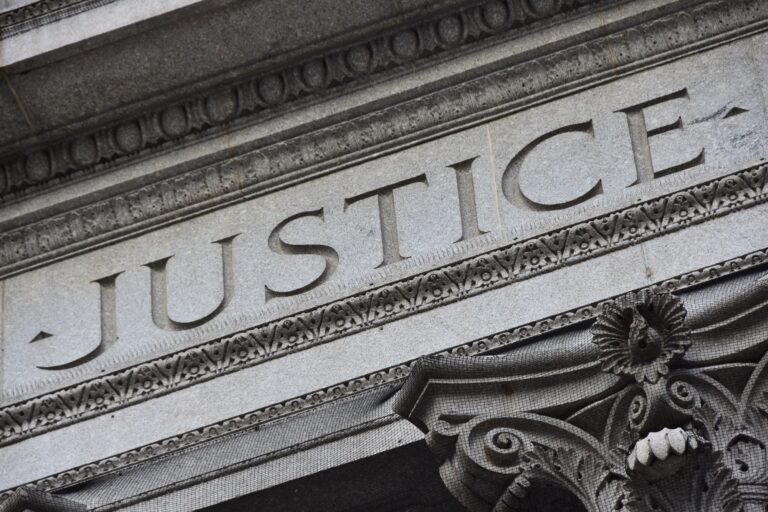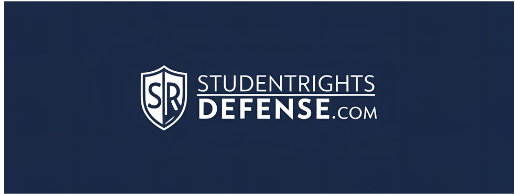Student Disciplinary Hearings & Code of Conduct Violations
Protecting the Rights of Students with Disabilities
Defending Students in Disciplinary Proceedings
As Student Rights Defenders, we understand how overwhelming it can be to face a student disciplinary hearing. A code of conduct violation can threaten your education, future career, and personal reputation. Whether you are accused of alcohol or drug violations, harassment, disorderly conduct, or other policy breaches, our student defense advisors are here to guide you through the process, ensure procedural fairness, and protect your rights.
Colleges and universities enforce their own disciplinary codes, often applying subjective standards of behavior with serious consequences. A finding of responsibility can lead to academic probation, suspension, expulsion, loss of housing, or removal from student organizations. Some violations may also be reported to graduate schools, professional licensing boards, or law enforcement. Having a knowledgeable advisor on your side can make all the difference.

What Are Code of Conduct Violations?
Each university has its own Student Code of Conduct, which outlines behavioral expectations for students. Common violations include:
- Alcohol & Drug Violations – Underage drinking, drug possession, or distribution.
- Hazing & Student Organization Misconduct – Violations related to Greek life, clubs, or athletic teams.
- Disruptive or Disorderly Conduct – Engaging in behavior that interferes with university operations or events.
- Harassment, Threats, or Bullying – Physical, verbal, or online conduct that creates a hostile environment.
- Property Damage or Vandalism – Destroying or defacing university or student property.
- Sexual Misconduct Allegations – May be addressed under Title IX or university conduct rules.
- Unauthorized Use of Technology – Hacking, misuse of university networks, or cyberbullying.
- Failure to Comply with University Officials – Disobeying directives from campus security, housing staff, or faculty.
Unlike criminal cases, student disciplinary matters do not require proof beyond a reasonable doubt. Universities apply lower standards of evidence, meaning decisions can be made with limited proof or subjective interpretations of behavior.
Consequences of a Student Code of Conduct Violation
A student conduct violation can have lasting effects on your academic record, financial aid, and future opportunities. Potential penalties include:
- Disciplinary Probation – A formal warning that may restrict student privileges.
- Loss of Campus Housing – Universities may remove students from dorms or revoke future housing eligibility.
- Suspension – Temporary removal from the university for a set period.
- Expulsion – Permanent removal from the university, sometimes with a transcript notation.
- Loss of Scholarships or Financial Aid – Some violations can make students ineligible for grants or scholarships.
- Impact on Graduate & Professional School Admissions – Disciplinary history may be disclosed in applications.
A strong defense in your disciplinary hearing can help mitigate these consequences or even lead to dismissed charges.
Why You Need a Student Disciplinary Hearing Advisor
University disciplinary proceedings do not provide the same due process protections as criminal courts. Without an experienced advisor, students often face disciplinary boards unprepared.
Challenges Students Face Without an Advisor:
- Lack of Transparency – Universities may not disclose the full evidence against the student.
- Restrictive Hearing Rules – Many schools limit cross-examination or witness testimony.
- Limited Appeal Rights – Strict deadlines and narrow appeal criteria can make reversals difficult.
- Subjective Standards – Codes of conduct often use vague language, leaving room for bias in enforcement.
Having a student defense advisor ensures you understand the process, prepare an effective response, and present the strongest possible case.
Our Approach to Student Disciplinary Hearings
As Student Rights Defenders, we help students navigate their hearings and protect their futures through a strategic and thorough defense process.
- Case Review & Strategy Development
We analyze the allegations, review the university’s evidence, and gather supporting materials, including witness statements, digital records, or procedural violations in the case.
- Preparation for Interviews & Hearings
We help students prepare statements, anticipate questioning, and practice responses to ensure confidence in hearings.
- Challenging Procedural Errors & Bias
If due process violations occur—such as lack of notice, evidence suppression, or biased decision-making—we raise objections and request fair proceedings.
- Appeals & Post-Hearing Advocacy
If a student is found responsible, we assist in filing appeals based on procedural errors, new evidence, or disproportionate sanctions.
Frequently Asked Questions About Student Disciplinary Hearings
- What rights do students have in university disciplinary hearings?
Students generally have the right to notice of allegations, an opportunity to respond, and access to evidence, but specific rights vary by institution.
- Can a student have an attorney in a disciplinary hearing?
Most universities do not allow legal representation during hearings, but students may have an advisor present to assist with their defense.
- What standard of proof do universities use in disciplinary cases?
Most schools use preponderance of the evidence (more likely than not), while some use clear and convincing evidence for serious violations.
- Can a disciplinary record affect future education and employment?
Yes, graduate schools and employers may request disclosure of disciplinary records, and certain violations may affect professional licensing.
- Can students cross-examine witnesses in a disciplinary hearing?
Many universities limit or prohibit direct cross-examination, but students may be allowed to submit questions through a panel.
- Can social media posts be used as evidence in a hearing?
Yes, universities may use social media, text messages, or digital records as evidence in conduct cases.
- What happens if a student does not attend their disciplinary hearing?
Universities often proceed with the case in the student’s absence, which can result in an automatic finding of responsibility.
- How long does a disciplinary process take?
Timelines vary, but most investigations and hearings last between 30-90 days, depending on the complexity of the case.
- Can a disciplinary decision be appealed?
Yes, students can usually appeal based on procedural errors, new evidence, or excessive sanctions, but deadlines are strict.
- Can a disciplinary violation be removed from my record?
Some universities allow records to be expunged after a certain period or upon successful completion of probation or educational programs.
Get the Support You Need
Facing a student disciplinary hearing is stressful, but you do not have to go through it alone. As Student Rights Defenders, we provide the guidance, preparation, and advocacy necessary to ensure a fair process and help protect your academic future.
If you are facing disciplinary action, we are ready to assist. Contact Student Rights Defenders today for a confidential consultation at (856) 209-3111 or email [email protected].
